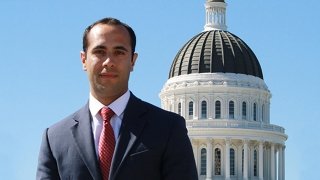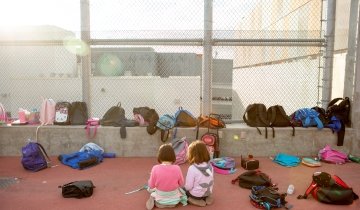Edgar Zazueta, a second-year student in the USC Rossier Doctor of Education (EdD) in Organizational Change and Leadership program, serves on the advisory board of PACE’s LCFF Research Collaborative. There he teams with Associate Professor Julie Marsh and other experts — many of them USC Rossier alumni — in exploring new and better ways to measure how districts hold up their end of the bargain.
“When LCFF was being debated, I was on the front lines in Sacramento on behalf of the Los Angeles Unified School District (LAUSD) trying to push that forward — not only because it would benefit the district but because an equity-based formula was the right thing to do,” he says.
Zazueta spent nine years with LAUSD — first as chief legislative representative and later as its director of government relations and then external affairs. Prior to that he worked with the White House Initiative on Educational Excellence for Hispanic Americans and in the office of a California state senator focusing on education issues.
In November 2015, Zazueta joined the Association of California School Administrators (ACSA), where, as senior director of policy and government relations, he led the organization’s advocacy efforts in Sacramento and Washington, D.C.
“I’ve seen the opportunities and challenges of LCFF from the perspective of California’s largest district to now hearing from ACSA members around the state,” he says.
Among those challenges is a lack of sufficient resources. “The system is still very much underfunded,” Zazueta notes. “I visit schools and districts around the state, and I’ve yet to encounter a teacher, school administrator or superintendent who says, ‘OK, we’re good. We don’t need any more.’ LCFF really has to be the mechanism to go to your community and, in a time of scarce resources, determine what to prioritize.”
Another issue is measuring whether the new approach is driving accountability and stakeholder engagement. “In some places, the LCAP is being used as a strategic planning document for school leaders,” he says. “In others, it does feel like a compliance exercise.
This is an experiment in many ways, about the whole notion of local control and giving so much authority to those districts. We all have a responsibility to continue to evaluate that, analyze it and draw on best practices to ensure we’re really driving systemic change.”
Zazueta’s path may have taken him away from his original dream to teach, but he has devoted his entire career to advancing education.
“Being on this side of things, getting my doctorate and getting to work with these researchers, I have a better appreciation that the data is so underutilized,” Zazueta adds. “Whether it’s LCFF, charter schools or other public policy issues, we really should rely on the best thinking and research. That’s what I find exciting now.”





